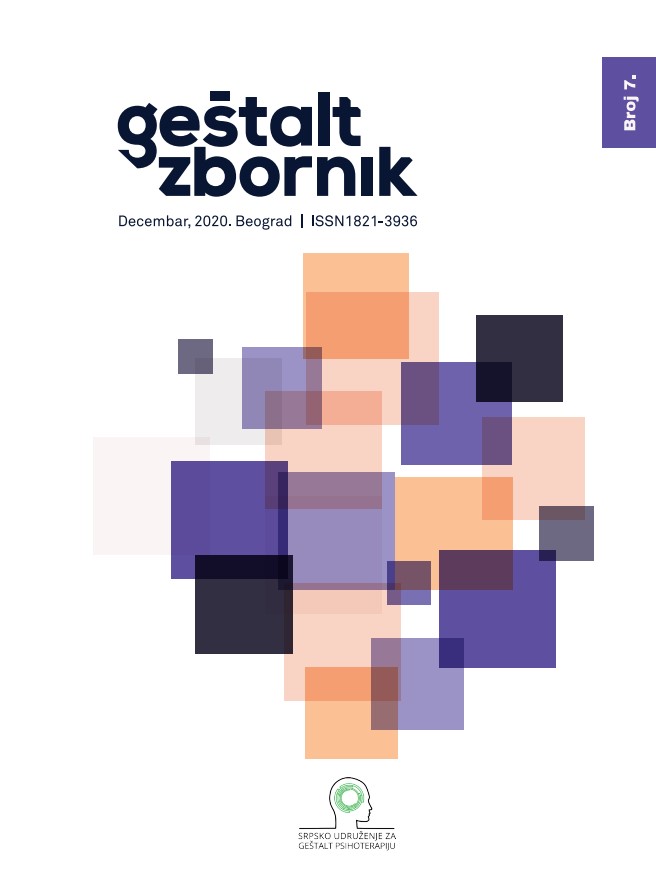UTICAJ HUMORA NA PSIHOTERAPIJSKI ODNOS IZ PERSPEKTIVE PSIHOTERAPEUTA
THE INFLUENCE OF HUMOR ON THE PSYCHOTHERAPEUTIC RELATIONSHIP FROM THE PERSPECTIVE OF THE PSYCHOTHERAPIST
Author(s): Brankica Šaljić Milenković, Dunja VesićSubject(s): Psychology, Communication studies, Sociology
Published by: Srpsko udruženje za Geštalt psihoterapiju
Keywords: qualitative research; humor; relationship; closeness
Summary/Abstract: The literature and research from the past ten years, relating to the topic of the use of humor in psychotherapy in general, focuses more on the client experience rather than the therapist experience. There was more interest in influencing the outcome of the therapy and how the client perceived the therapist using humor, than concerned with the impact on the relationship and the therapist’s personal experience. This qualitative research was conducted to see how the use of humor affects the relationship between the psychotherapist and the client but from the perspective of the psychotherapist. A semi-structured interview was conducted with three therapists. The data were analyzed by interpretative phenomenological analysis. We wanted to see how therapists perceive and feel that humor influences the relationship between them and clients. After the data has been processed, the results show many similarities in their experience. Examinees find humor to be welcomed at first encounters with clients, as part of a relaxing atmosphere and later as something that gives a sense of closeness and comes from the depth of contact. As the relationship between the client and the therapist develops, it becomes clearer that humor is also an intervention and that one should also be careful not to be hurtful. Provides a sense of involvement, togetherness and intimacy in the relationship. The significance of this research may also be that in the Gestalt literature and through education, 17 other than explaining the defense mechanism known as deflection, humor and its use in therapy are not addressed as a separate topic, and it is very significant from both the client’s and therapist’s perspectives. The research leaves room to examine the experiences of male therapists as well as therapists of different modalities.
Journal: Geštalt Zbornik
- Issue Year: 2020
- Issue No: 7
- Page Range: 7-17
- Page Count: 11
- Language: Serbian

